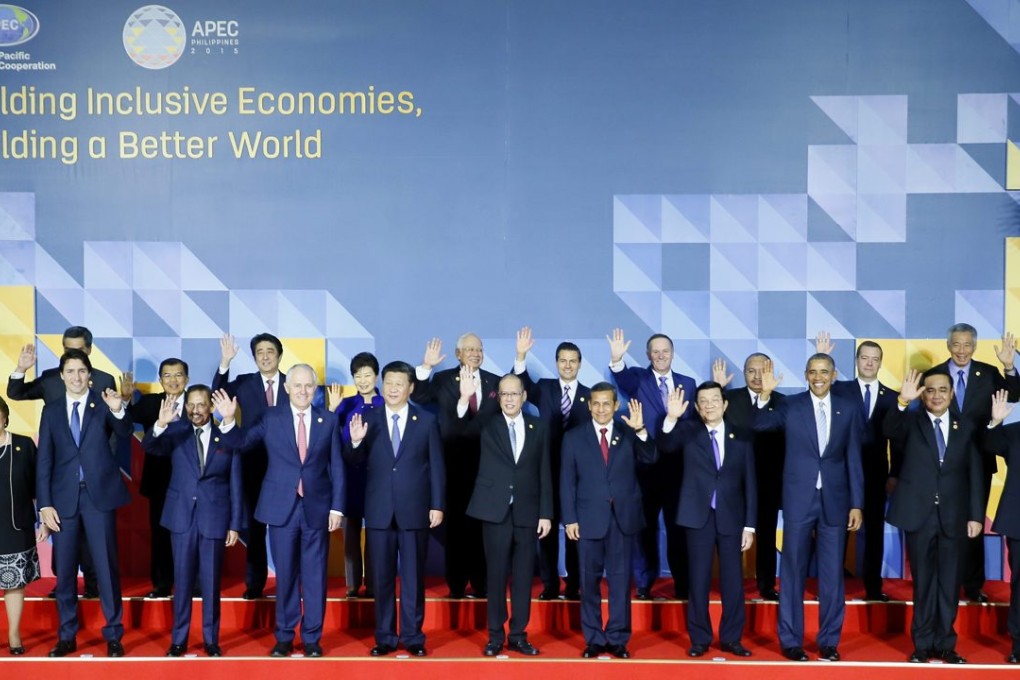Beijing-backed free-trade plan fails to advance at Apec
South China Sea disputes a hot topic of discussion but declaration at the end of the Asia-Pacific leaders summit makes no reference to the issues

A Beijing-backed plan for a regional free-trade pact failed to advance on Thursday afternoon, with Asia-Pacific leaders simply repeating their support for a goal made at last year’s Apec summit.
In a joint declaration to wrap up the two-day Asia-Pacific Economic Cooperation summit, the 21 leaders again backed a strategic study of the Free Trade Area of the Asia-Pacific (FTAAP), the goal they set in 2014 at their meeting in Beijing.
They also said the US-led Trans-Pacific Partnership (TPP) – and the Regional Comprehensive Economic Partnership (RCEP) were “possible pathways” to realising the FTAAP.
“We reiterate our belief that the FTAAP should be pursued as a comprehensive free-trade agreement by building on ongoing regional undertakings,” the leaders’ statement said.
The declaration came a day after TPP signatories met in the Philippine capital on Apec’s sidelines. The statement also came after President Xi Jinping warned that rival trade pacts in the Asia-Pacific region might cause “fragmentation” of the regional economy.
Read more: Game on: How the US and China are vying for dominance in the battle of the Asia-Pacific trade pacts
Japanese Prime Minister Shinzo Abe told Apec leaders that he believed the trade pact would create a new economic order and could serve as a platform to determine rules for the FTAAP.